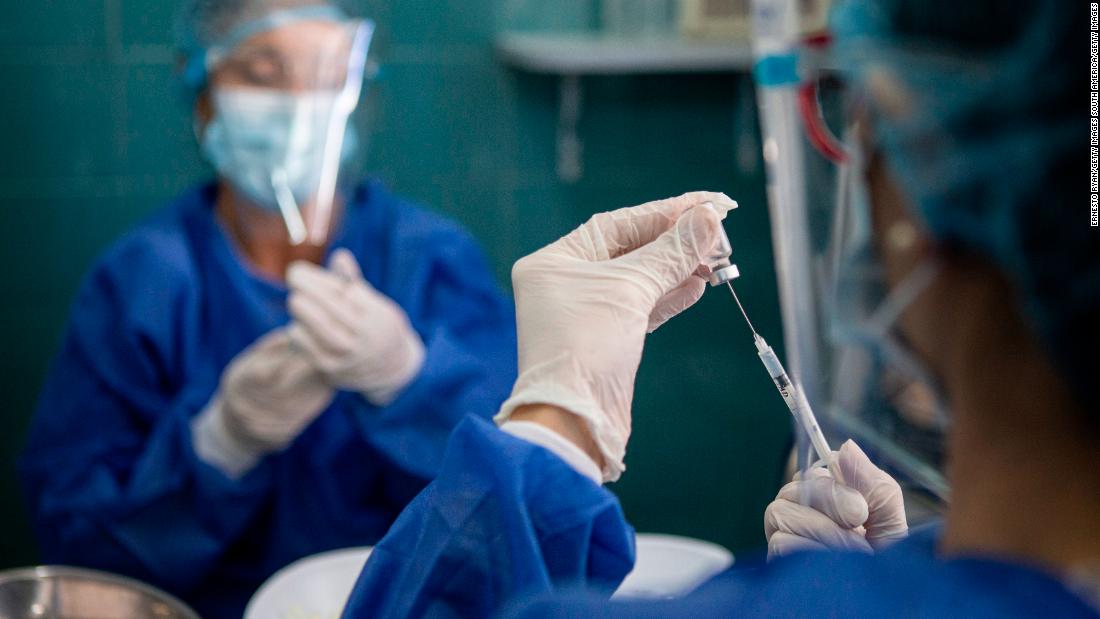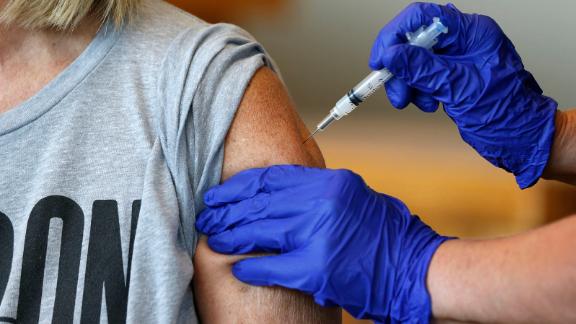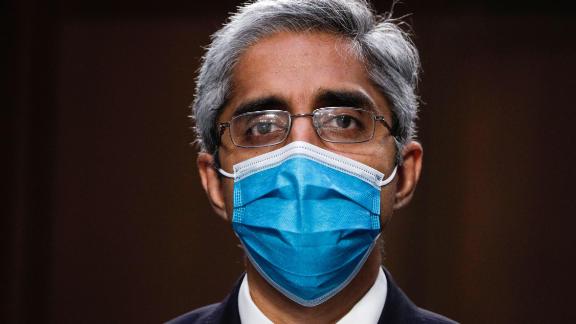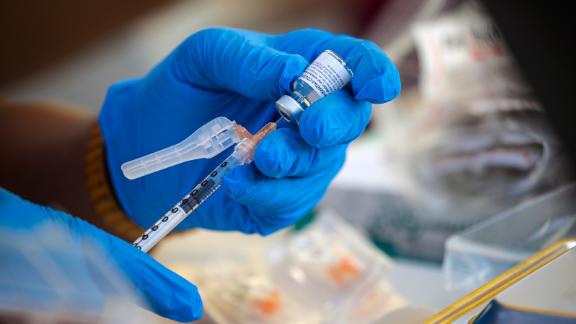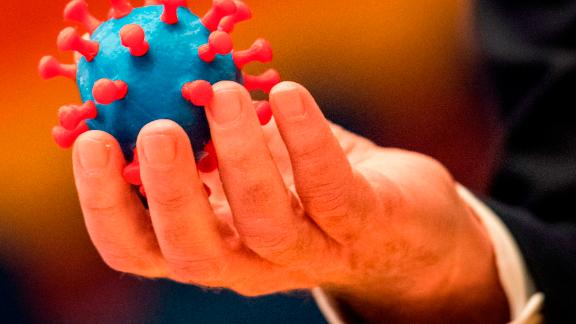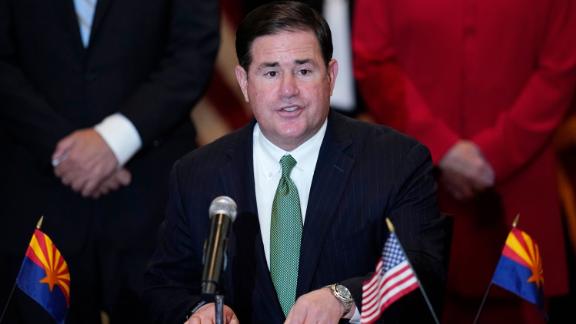Here are the precautions the immunocompromised should take before returning to the office
CNN —
Many pandemic restrictions have been lifted for the vaccinated, but for the millions of people with conditions that suppress the immune system, who may not get as much protection from a Covid-19 vaccine, life has been trickier.
On Thursday the US Centers for Disease Control and Prevention’s Advisory Committee on Immunization Practices (ACIP) will discuss whether immunocompromised people need a third shot to better protect themselves from Covid-19, since the vaccines may not work as well for them.
Until then, people with weaker immune systems still have to figure out how to navigate a return to in-person work and other activities, but they have limited information.
“We are getting some questions about this for sure,” said Dr. Laura Makaroff, the senior vice president for prevention and early detection at the American Cancer Society.
The Covid-19 vaccines work well and for most people they provide significant protection against death and hospitalization; however, no vaccine is 100% protective, and while relatively rare, there have been breakthrough cases.
For people with weaker immune systems, it’s not always clear how much protection the vaccines offer. These people are also more vulnerable to severe Covid-19 and more vulnerable to having a prolonged infection, which means they’d also be more likely to transmit the virus to their household members.
Makaroff said there are ongoing discussions in the cancer community about boosters. A study from Johns Hopkins researchers last month suggested an extra shot may help increase antibody levels for another immunocompromised group: organ transplant recipients, who didn’t have a full response with their original doses. Some patients report having gotten an extra shot on their own, but so far that’s not yet what the CDC recommends.
“Unfortunately, it’s hard to give real specific guidance,” said Dr. Marci Lynn Drees, the chief infection prevention officer and hospital epidemiologist for ChristianaCare and is the Society for Healthcare Epidemiology of America’s liaison to ACIP. “Just because we know there’s a risk that they may not respond to the vaccine quite as well, but there is also not a really good commercially available reliable test to say whether they did or didn’t respond to the vaccine, so it’s a little bit of guesswork.”
There are tests to see if people have generated antibodies after vaccination, and some doctors have offered them, but the CDC doesn’t recommend it.
“Technically, we have an antibody test for the spike protein. The problem is we don’t really know what levels are protective,” said Dr. Amy Edwards, the associate medical director of Pediatric Infection Control at UH Rainbow Babies and Children’s Hospital in Cleveland.
“Now we assume if your antibodies are completely negative that you didn’t respond to the vaccine, but believe it or not, antibodies are not the end all, be all. We know that your T-cell response also plays a huge role in viral immunity,” Edwards added.
“So the concern is that somebody would get a negative antibody response and think they are not protected. Or the reverse maybe they have antibodies, but their T cells don’t function very well and they then have false confidence that they are protected,” Edward said.
For now, groups like the American Cancer Society and others have been advising people with a weakened immune system from cancer or its treatment, even the vaccinated, to stick with familiar pandemic public health measures.
The CDC made the same recommendation for certain immunocompromised groups on Friday. The groups included organ transplant recipients, people who are receiving chemotherapy for cancer, people who have certain blood cancers, and people receiving dialysis or taking medications that suppress the immune system.
They should all wear masks in crowds, continue social distancing and be careful about hand hygiene, Makaroff said.
The CDC also recommended avoiding crowds and poorly ventilated indoor spaces.
Amber Clayton, who runs the HR Knowledge Center with the Society for Human Resource Management, said some people with an immunocompromised condition may qualify as having a disability under the Americans with Disability Act. They may be able to get what’s known as a reasonable accommodation. That could include working from home, or a staggered shift, or office space away from others, even if other people are expected back fulltime. “That way they’re not exposed,” Clayton said.
If someone is not protected under disability laws, employers may have policies that provide for reasonable accommodations for individuals with what’s considered “temporary disabilities.”
“Everyone is going to have to assess their own situations and determine what’s the best option,” Clayton said.
And the best option, for everyone, no matter whether they are immunocompromised, experts say, is to get vaccinated and to encourage everyone else to get vaccinated.
“You know everyone kind of thinks of themselves, but you know the more people we can get vaccinated, the more we protect those who either can’t be vaccinated because they are young kids or people who have a medical reason,” said Drees. “We are all in this together and we’re not going to all get out of the pandemic and get back to normal until we really get a much higher vaccination rate.”
![]()


